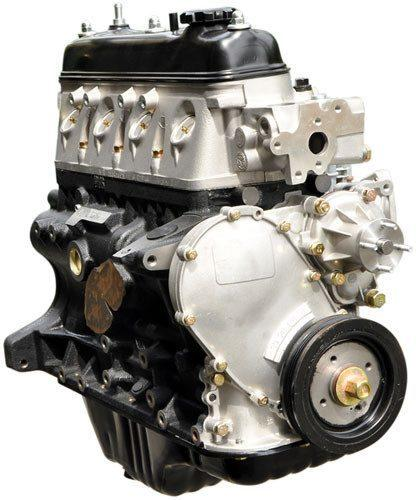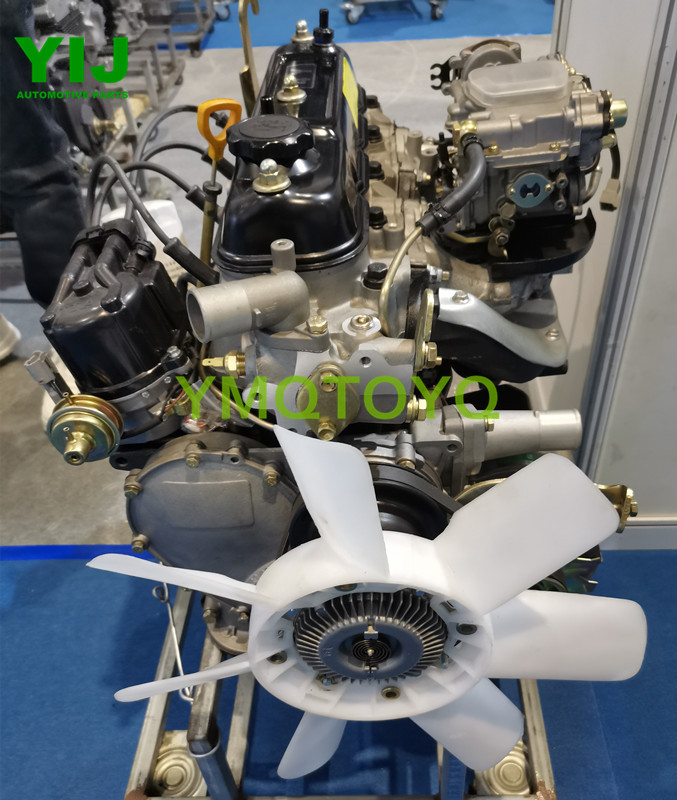Checking Out the Numerous Sorts Of Engine: Which One Fits Your Demands?
In the quest to identify one of the most ideal engine kind for your particular demands, it is critical to examine the distinctive features and advantages of each alternative readily available. Inner burning engines remain to control as a result of their dependability, while electrical engines are getting traction for their sustainability. Hybrid engines provide a versatile compromise, and diesel motor attract attention for their power in requiring applications. In addition, different gas engines present innovative solutions, albeit with particular constraints. Recognizing your concerns will be instrumental in this decision-making procedure, causing an expedition of elements that may affect your option.

Inner Burning Engines
Internal burning engines (ICEs) are the backbone of modern transport, powering a large array of lorries from cars and trucks to planes. These engines operate the principle of transforming fuel right into power through a collection of controlled surges within a combustion chamber. The most usual sorts of ICEs consist of gas engines, diesel engines, and rotary engines, each created to meet details performance and performance needs.
Gas engines generally make use of spark ignition, while diesel motor rely upon compression ignition, leading to distinctive differences in gas performance and power output (4y engine). Rotating engines, or Wankel engines, offer a small layout and smooth operation, however are much less typically made use of in mainstream applications
ICEs have gone through significant improvements in modern technology, including the introduction of turbocharging and gas shot systems, which enhance general performance and efficiency. Despite their effectiveness renovations, ICEs face boosting analysis due to their environmental effect, especially pertaining to greenhouse gas emissions. As the automobile market advances, the future of ICEs remains a topic of discussion, balancing performance, effectiveness, and ecological factors to consider. Nonetheless, they proceed to play a crucial role in worldwide transportation facilities.
Electric Engines
As problems concerning ecological sustainability and nonrenewable fuel source dependency expand, electrical engines have actually emerged as a compelling choice to inner combustion engines. These engines utilize electrical motors powered by batteries or gas cells, offering a cleaner and much more efficient methods of propulsion.
One of the primary benefits of electrical engines is their decreased emissions. Unlike typical engines that shed nonrenewable fuel sources, electrical engines generate zero tailpipe emissions, dramatically reducing air pollution and adding to boosted public health and wellness. Additionally, the performance of electric motors frequently goes beyond that of interior combustion engines, transforming a greater percentage of energy from the power resource into useful power for movement.
Electric engines are additionally remarkable for their peaceful operation, making them ideal for city atmospheres. 4y engine. The simplicity of their style leads to fewer relocating parts, which can bring about decreased upkeep costs and raised reliability with time
Nevertheless, obstacles stay, consisting of battery production influences, charging framework, and variety limitations. Regardless of these hurdles, the expanding financial investment in electric lorry technology and sustainable power sources points towards a promising future for electric engines, placed to play an important duty in the shift towards lasting transportation.
Crossbreed Engines
Mixing the benefits of both electrical and conventional interior burning engines, hybrid engines stand for a versatile service in the mission for reliable and sustainable transportation. These engines combine a gas or diesel engine with an electric motor, enabling improved gas performance and lowered discharges contrasted to standard automobiles.
Hybrid engines run in numerous settings, making use of the electrical motor for low-speed driving and the inner burning engine for greater rates or when even more power is required. This dynamic procedure not just boosts gas economy but also adds to a smoother driving experience. Regenerative stopping is an additional critical feature, capturing power typically shed throughout stopping and redirecting it to charge the battery.

As customers significantly prioritize eco-friendliness, hybrid engines stand out as a sensible option, offering a reliable balance of efficiency, effectiveness, and environmental duty. This versatility makes them ideal for metropolitan commuting and long-distance traveling alike.
Diesel Engines
Performance and power are hallmarks of diesel motor, which have long been preferred for their robustness and gas economy. These engines operate the principle of compression ignition, where air is pressed to a heat prior to fuel is infused, sparking it without the requirement for trigger plugs. This process makes it possible for diesel engines to attain higher thermal effectiveness contrasted to gas engines, converting into much better gas mileage and lower carbon dioxide discharges.
Diesel engines are especially appropriate for sturdy applications such as vehicles, buses, and commercial machinery, check out here where torque and durability are critical. Their layout typically includes stronger elements to stand up to the greater stress created during operation, resulting in longer service life and minimized upkeep prices.

Different Gas Engines
While diesel motor have long dominated the landscape of heavy-duty source of power, alternative gas engines are getting traction as viable alternatives for a much more sustainable future. These engines utilize a selection of gas, such as compressed gas (CNG), hydrogen, lp, and ethanol, intending to minimize greenhouse gas emissions and dependence on fossil gas.
One considerable benefit of alternate fuel engines is their possible to lower carbon impacts. CNG engines emit less pollutants contrasted to traditional diesel engines, making them appropriate for urban transit systems and fleets looking for to improve air quality. Ethanol, originated from biomass, not only minimizes emissions yet also supports farming economic climates.
Hydrogen fuel cells stand for an advanced advancement in this realm, using zero-emission power via a chain reaction in between hydrogen and oxygen. Challenges such as facilities growth and manufacturing prices remain obstacles to prevalent adoption.
Final Thought
In verdict, selecting the suitable engine type requires mindful factor to consider of specific needs and preferences. Interior burning engines supply integrity, while electrical engines focus on sustainability and reduced maintenance. Hybrid engines combine the advantages of both, enhancing efficiency, whereas diesel engines offer remarkable power and torque for durable applications. Alternate fuel engines present green alternatives, albeit with possible framework obstacles. Inevitably, a thorough analysis of driving routines and ecological values will facilitate an informed decision regarding engine option.
Hybrid engines provide a versatile concession, and diesel engines stand out for their power in requiring applications. The most typical types of ICEs consist of gas engines, diesel engines, and rotary engines, each designed to fulfill certain performance and efficiency needs.
Unlike typical engines that melt fossil fuels, electric engines produce zero tailpipe emissions, significantly decreasing air contamination and contributing to boosted public wellness.Crossbreed engines operate in a number of modes, making use of the electric motor for low-speed driving and the internal burning engine for greater speeds or when more power is needed. Crossbreed engines incorporate the advantages of both, enhancing effectiveness, whereas diesel engines provide premium power and torque for heavy-duty applications.